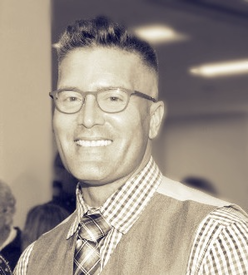
What does the experience of inclusion feel like? Have you ever stopped to think about it? Our conversation with Kevin Shafer on an episode of Time for Teachership is about how diversity and inclusion is not just checking some boxes, but it’s a process that results in students—all students—experiencing inclusion. But to get there, educators and administrators need to overhaul the system. Instead of trying to fit diverse students into specific types of environments, we need to re-evaluate if the current system is even working at all. Kevin discusses an important mindset shift, how to build an inclusive system, and resources to explore. Changing Mindsets from Deficit to Asset In many schools, students with dis/abilities are often excluded. The common mainstream special education system is not built to overcome this and can widen the gap between students of different abilities. Kevin Schafer’s dream is to see special education used as a tool for social justice and equity while still providing a high-quality education to all students. But to get there, educators and administrators need to shift their mindset. Instead of viewing students with dis/abilities through a deficit mindset, it needs to shift to an asset mindset—that the diversity of abilities in a classroom is a major and important asset to everyone’s education. Building a System for Inclusion This mindset shift from deficit to asset is the beginning, but it’s not the only thing that needs to change. Kevin believes there needs to be a system overhaul—a process of building inclusive, diverse systems that help all students achieve a high-quality education. It starts with leadership and the administration team. They need to dedicate time to getting on the same page and building a vision for their school. The vision needs to be a school where all students can learn. It presumes competence, that no matter their abilities, they can learn. Leadership needs to seek input from other stakeholders, especially students and families with diverse abilities. Then, with this input, they can build a plan through a logic model, which includes:
Resources and First Steps Most educators are already on board with creating more diverse, inclusive classrooms—it’s the how that often feels overwhelming. Kevin recommends starting from a point of education and knowledge. He recommends the books “Equity by Design” by Katie Novak and Mirko Chardin and “Anti-Racism and the Universal Design for Learning” by Andratesha Fitzgerald as two places to start. As educators continue to grow in knowledge, they can also address their implicit biases—how do they see students with dis/abilities? Are they in that deficit mindset? Once the system as a whole and adult implicit biases are addressed, then things can truly start to change. Conclusion The “mythical average”—the idea that there are average students in all environments—needs to become outdated. Everyone has growth areas, areas they excel, or areas then need help in. The problem with identifying students by their dis/ability is it makes them a one-dimensional person, instead of the diverse human they are. It’s time to go broader than just the label of dis/ability but see all students as diverse. Then we can build systems that serve each of them. If you want to keep up with what Kevin is doing, make sure to visit www.sipinclusion.org. There are many resources and webinars about inclusion that walk educators through everything step by step. And, if you want to keep up with us at the Time for Teachership podcast, check out more episodes here.
0 Comments
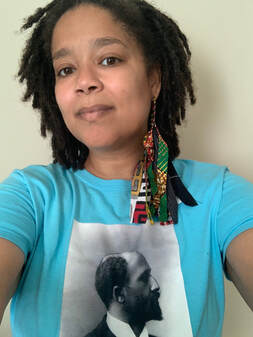
Listen to the episode by clicking the link to your preferred podcast platform below:
It’s uncomfortable to talk about taking accountability. It’s uncomfortable talking about putting your job on the line. It’s uncomfortable to become self-aware. And yet, dreams have to be uncomfortable. If you want to change but aren’t willing to be uncomfortable, then it’s not real change. Dr. Kimya Nuru Dennis spoke with us on an episode of the Time for Teachership podcast, where she shared what this kind of uncomfortable change might look like in education. And it goes far beyond social media and tokenism but gets to the heart of being self-aware and honest enough to recognize where you’ve gone wrong. Dreams for Education Dr. Dennis’s dream for the field of education is simple: that we would stop being stuck in concepts, theories, and repeated readings. And that people would wake up and realize that despite a cultural narrative of change, we are clinging to the white-cisgender-heteronormative histories and curriculum that have been in place for centuries. It’s not just an American problem, but a global one. In recent years—particularly during the “awakening” period of 2016-2022—many people express a desire or interest to change. They might attempt to increase diversity by including new materials. And yet those new materials are still what passes white standards or what ended up on the bestseller’s list. Dr. Dennis wants to see us break away from this—finally. To do the work, take responsibility for what should change and what hasn’t changed, and be okay with discomfort through the process. Taking Responsibility as Educators The biggest step towards increased diversity and equity (and real change, not just lip-service), is for educators to take responsibility—not just over our own classes, but over the system we are part of. Most educators went through a very rigid teaching training model. And so, even if we acknowledge that there is a need for change, we may put the blame on someone else—our training or the board. We often just accept the curriculum given to us rather than developing something ourselves. But Dr. Dennis urges us to take responsibility for what role we are playing and not downplay the impact we have to change the system. Challenging Yourself and Others There’s a mistaken belief amongst educators that we are only responsible for what happens in the four walls of our classrooms. But the reality is that we are part of a broader community that we can influence. And if teachers are not holding each other accountable, there’s no real way to make sustainable changes. It’s important that teachers step away from social media and the “adult popularity contest,” as Dr. Dennis puts it. Instead, it’s time to be self-reflective in a few areas:
Conclusion Equity and diversity in our schools and school system will not happen with social media performances or lip-service to change. It will come when we are committed to doing our own personal inner work and then holding others around us accountable to this work as well. The work is not easy, but it is important. Dr. Dennis had so much more to share about her thoughts on the state of education, teachers’ responsibility, and how we need system-wide change. Make sure to check out her full interview on the Time for Teachership podcast. You can also follow along with her work at 365 Diversity. 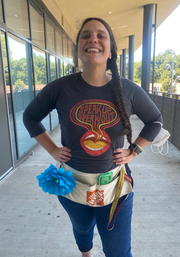 Listen to the episode by clicking the link to your preferred podcast platform below: There’s a saying that goes: “To make an omelette, you need to crack a few eggs.” Essentially, to do something good, you might have to break something. And that can be hard—even painful. But it’s a philosophy that Abbie Korman, guest on a recent episode of the Time for Teachership podcast, is passionate about. Abbie returned to her teaching profession during the pandemic after an 11-year hiatus. And she’s returned with a purpose: to become the best teacher she can be to her students while impacting structural change for the good. To reach this goal, Abbie has found a community of like-minded educators through Teachers for Good Trouble, who have a common interest in making an omelette (structural change) through their good trouble—advocacy efforts, professional development, and systemic transformation. Freedom Dreams: Goals for the Field of Education Abbie shared many “freedom dreams” she has for the field of education. Many of them relate to the systemic change that she desires to see. Instead of following the status quo, Abbie believes that many areas of education are broken and need a major overhaul. Together with her community and support system, Abbie identified just some of these goals that she’s fighting to change:
All these goals hinge on an important question: are we satisfied with the status quo or are we willing to take steps to change things for the better? Changing Personal and Structural Mindsets Looking at this list of freedom dreams might seem daunting, especially for teachers and educators who maybe haven’t thought through some of these areas yet. But change always starts with you. It starts with us. Each of us is responsible for our own mindset and growth. So, that’s why Abbie recommends starting with personal reflection. If there is something going on in your class, what can you do to change it? Where is your locus of control as a teacher? What responsibility do you have to make a difference? This kind of personal reflection is the start of any impactful mindset shift and action. From there, teachers need to tap into a mindset of larger structural changes. For example, Abbie talked about the fact that 80% of teachers are white women—why? It’s not because they make the best teachers, but because the current educational system is made for them. So to make it more inclusive and more diverse, massive structural changes need to take place. How to Take Brave Actions So how do we change things? There are many brave actions that teachers can take today. But to take brave action, it’s important to have a community of support around you. So as a step #1, Abbie recommends getting online and joining “teachergram,” or the teacher side of Instagram. This is a way to access free professional development and a community of like-minded educators. She recommends @teachersforgoodtrouble, @callmeshivy, @liberation.lab, and @kwame_the_identity_shaper as a place to start. From there, here are some brave actions that can make a big impact:
These brave actions might feel overwhelming to teachers who feel alone. But you’re not alone! As Abbie shared, there are so many teachers who are changing the field and making it a more inclusive and diverse space… you just need to find and connect with them! Let’s continue to be inspired by each other. That’s a big part of what Time for Teachership podcast is about! Make sure to listen to Abbie’s interview as well as other episodes of the podcast here. 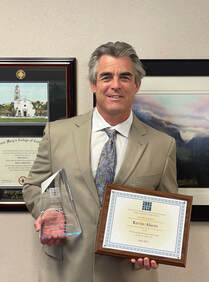 Listen to the episode by clicking the link to your preferred podcast platform below: It’s been said many times that your budget reflects your values—how you prioritize money speaks to what you care about. And this applies on a personal level, but also in an educational setting. But it’s more than just how you spend your money as a school or administrator, but how you spend your time. Dr. Kevin Ahern’s priority as a principal is to invest time into relationships with his colleagues, teachers, students, and parents. That time translates to a deeper understanding of the community, how to build a more equitable educational environment, and evaluating what changes need to be made to maximize the learning experience. To talk more about his leadership philosophy, we invited Dr. Kevin Ahern onto an episode of the Time for Teachership podcast. He had so much wisdom to share, so make sure you catch his episode to hear the full conversation! From Community to Society Dr. Ahern has worked in education for 26 years, half as a teacher and half as an administrator, both in small and large schools. And over his career, he’s developed a big dream for the field of education: that we would focus on the micro, community level to impact change and improve the lives of the students. Then, how can that translate into the broader society? Too often we think about the high-level societal impacts of education or other facets of life. But what Dr. Ahern reminds us of is that as administrators and educators, we’re collaborating with individuals. It’s our responsibility, then, to focus on our immediate community of students and do everything we can to ensure they are empowered and inspired to learn and grow. Mindset Shifts for Growth To achieve this big dream for education, there needs to be a mindset shift. Instead of coming from a place of lack or not being good enough, administrators and educators should start with what we have. What are the assets already in the school? What’s great about this place? And why is it great? From there, administrators can either “keep watering the green grass,”—i.e., keep up the good work in areas that are excelling—or devote extra attention to the places that still need work. For Dr. Ahern, this hinges on collecting feedback from all the school’s stakeholders—students, parents, and teachers. From this, you can learn:
It’s important to always be willing to gather feedback and make those changes. And yet, change can be hard for many people, so it’s wise to approach it slowly and thoughtfully. Take stock of the situation, and then use creative problem-solving to optimize your school. Increasing Equity through Relationships Building an equitable school starts with understanding the operational definition of equity. How does the school administrators and staff define it? For Dr. Ahern, it’s simple. Equity is when every student gets what they need to experience success. And it’s built on relationships with all stakeholders:
Relationships are Dr. Ahern’s priority because he knows how they have the power to transform. Through conversation and open dialogue, the school can be part of the larger community conversations that matter for diversity and equity. Dr. Ahern’s advice to administrators is this: be present, build relationships, and start with what’s already working at your school. Instead of operating from a place of lack, start with the assets, resources, and great results you already have! This positive mindset will help you be open to growth and lead your school well. We talked about so much more in the Time for Teachership podcast, so make sure you go listen to it! If you want to keep up with Dr. Ahern, feel free to connect with him on LinkedIn. 8/1/2022 The Work Less, Teach More Planner: How to Plan Your Day, Week, Month and Year for Maximum ImpactRead Now
Listen to the episode by clicking the link to your preferred podcast platform below:
Do you ever feel like you’re working to your max—maybe even more than that!—and still don’t get through your list of to-dos? Or despite all that work, you’re not seeing any tangible impact in your classroom and student outcomes? Most educators will feel this way at some point. Enter: Work Less, Teach More. It’s our signature course and a philosophy discussed many times on the Time for Teachership podcast. In this episode, I break down how to use the Work Less, Teach More planner to maximize your planning time, protect your mental health, and reach your goals. The Work Less Teach More planner is available for purchase, but you can also work on these exercises independently and use a notebook or your computer to keep track of things. Each section of the planner addresses daily, weekly, monthly, or yearly goals and priorities. Let’s look at the highlights for each. Yearly Planning We’re starting with the yearly planning because there is some big-picture goal-setting activities to do at the beginning of each school year: Clarify Your Vision: Before the school year starts, get clear on your vision and goals for the year. Do this by asking the following questions:
Take Stock of Your Health: At the root of almost any conflict are unmet needs. We have needs in four areas, which you can remember with the BASE acronym: Belonging, Autonomy, Survival, and Enjoyment. Within each category, reflect on three questions:
Monthly Planning Each month, you’ll set priorities and goals. For example, in September your first and only goal might be for everyone to feel welcomed and included in the class. For January, it might be to re-focus on establishing a routine after a holiday break. Each month you can also:
Weekly Planning Weekly planning and reflection are essential to managing your time and reaching goals. There are a few key areas in which you’ll do this: 50-40-10 Planning: You have limited planning time each week, so focus on what is proven to make the most impact on your students. This includes:
Clear Your Plate: Each week, eliminate eight unnecessary tasks from your to-do list. This can be in both your personal and work life. Be specific about what it is and how you’ll pass it off to someone else. This is part of self-care, which is preventative—you must plan ahead to protect your time and mental energy. Daily Planning Your daily responsibility is simple. Ask yourself these two questions:
There it is—the Work Less Teach More planner in a nutshell! But there is so much more to the approach. Work Less Teach More is backed by research and has helped so many educators claim back their time while making maximum impact. You can learn more about Work Less Teach More here and follow along with the Time for Teachership podcast as part of your commitment to professional learning. |
Details
For transcripts of episodes (and the option to search for terms in transcripts), click here!
Time for Teachership is now a proud member of the...AuthorLindsay Lyons (she/her) is an educational justice coach who works with teachers and school leaders to inspire educational innovation for racial and gender justice, design curricula grounded in student voice, and build capacity for shared leadership. Lindsay taught in NYC public schools, holds a PhD in Leadership and Change, and is the founder of the educational blog and podcast, Time for Teachership. Archives
May 2024
Categories |
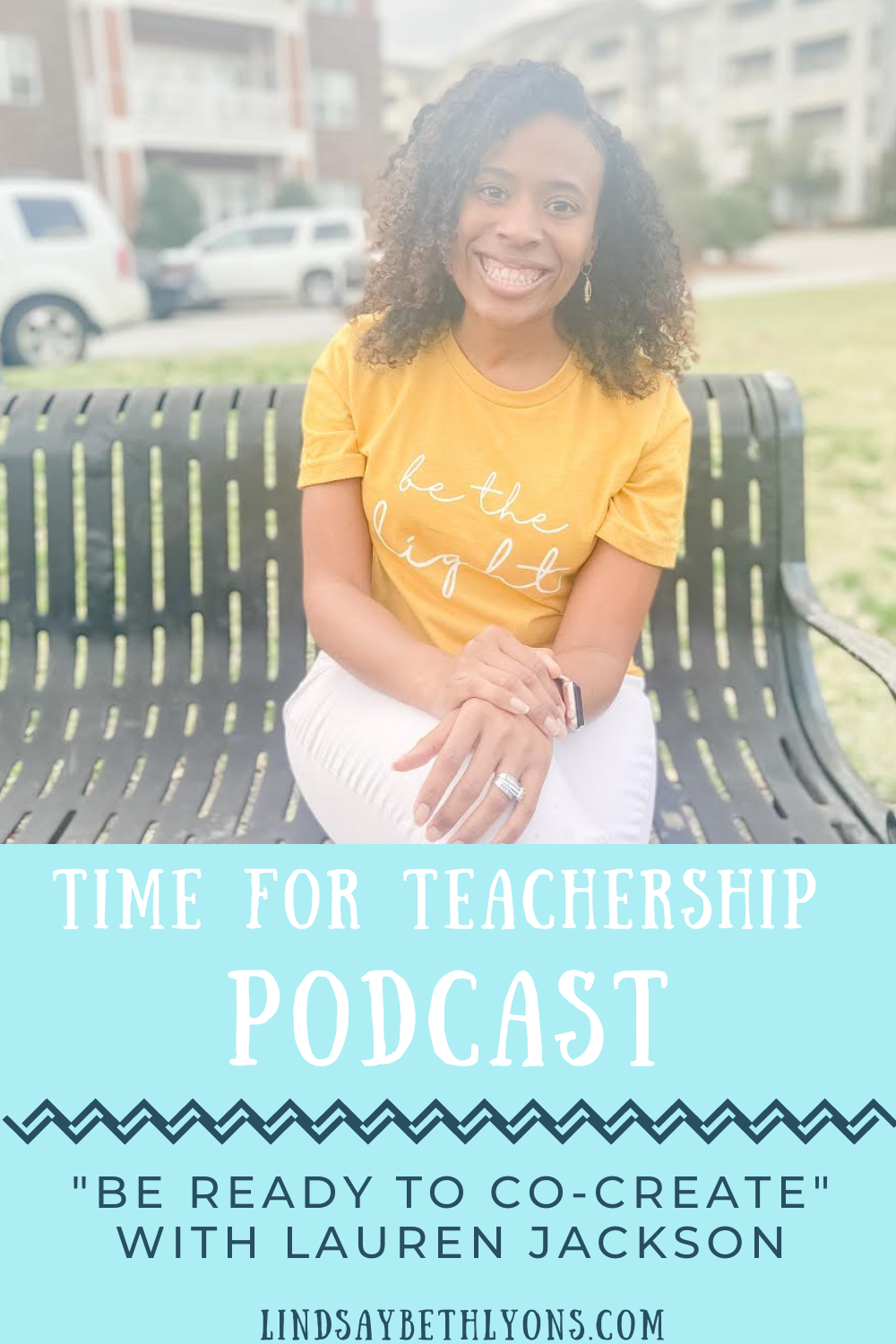
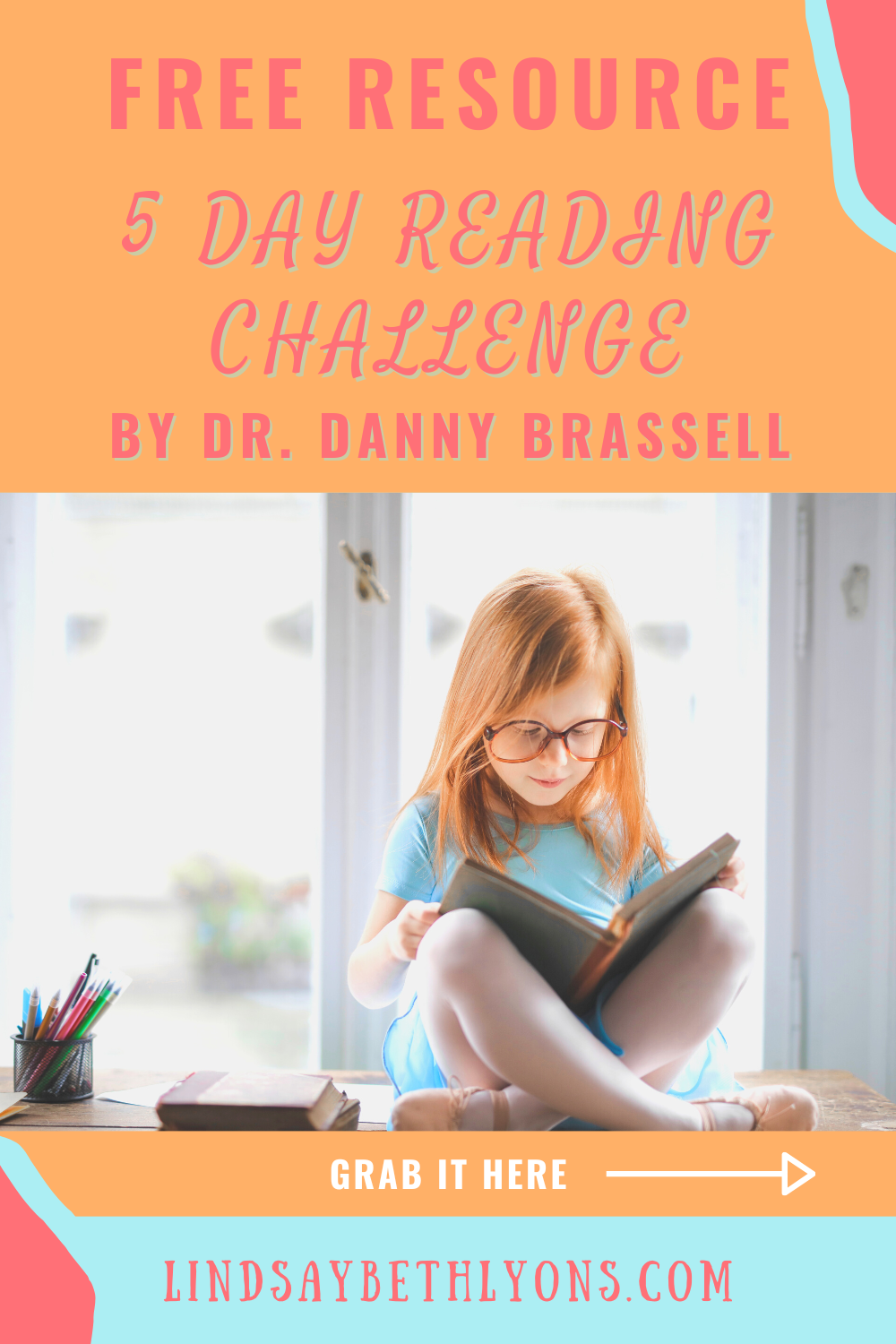
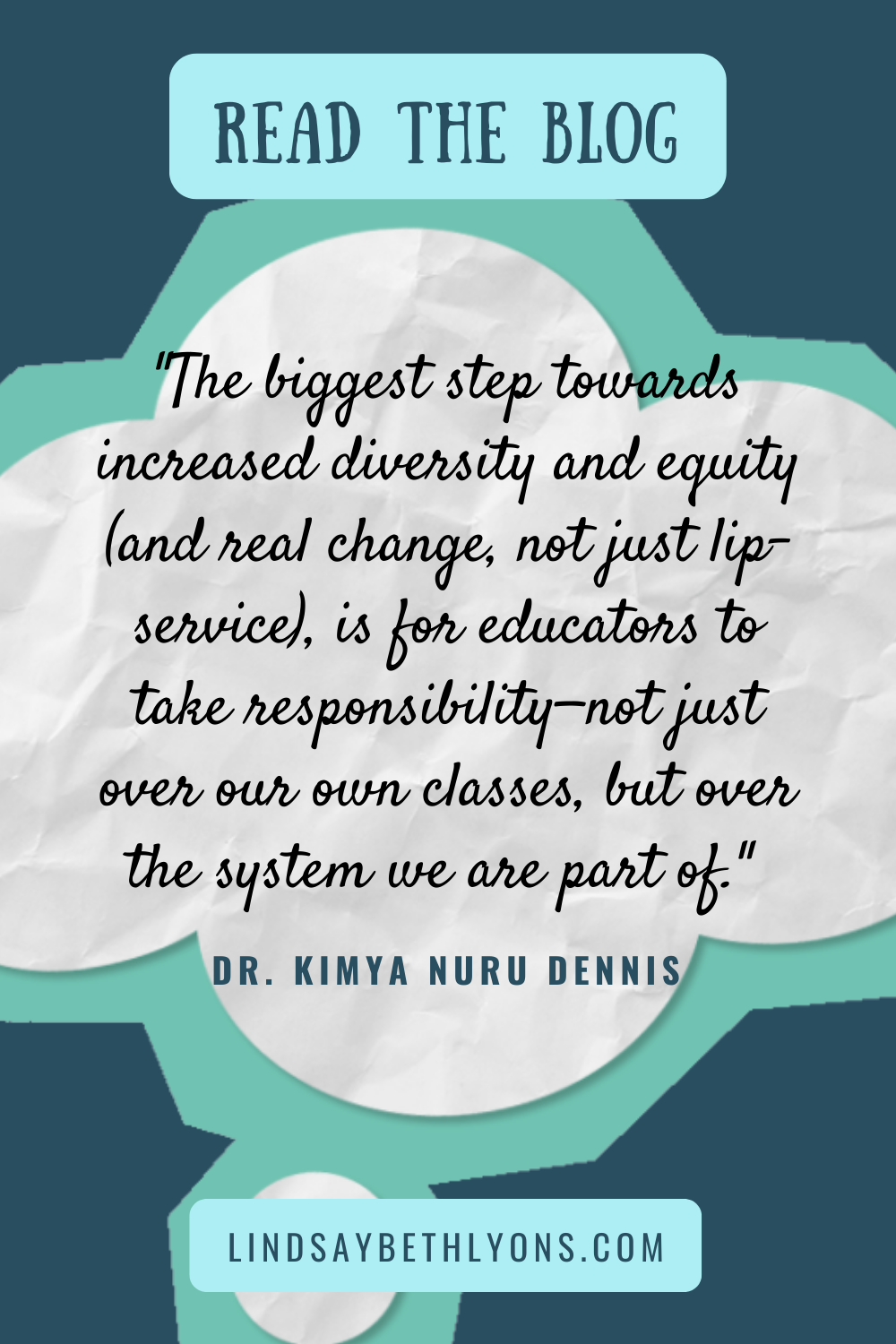
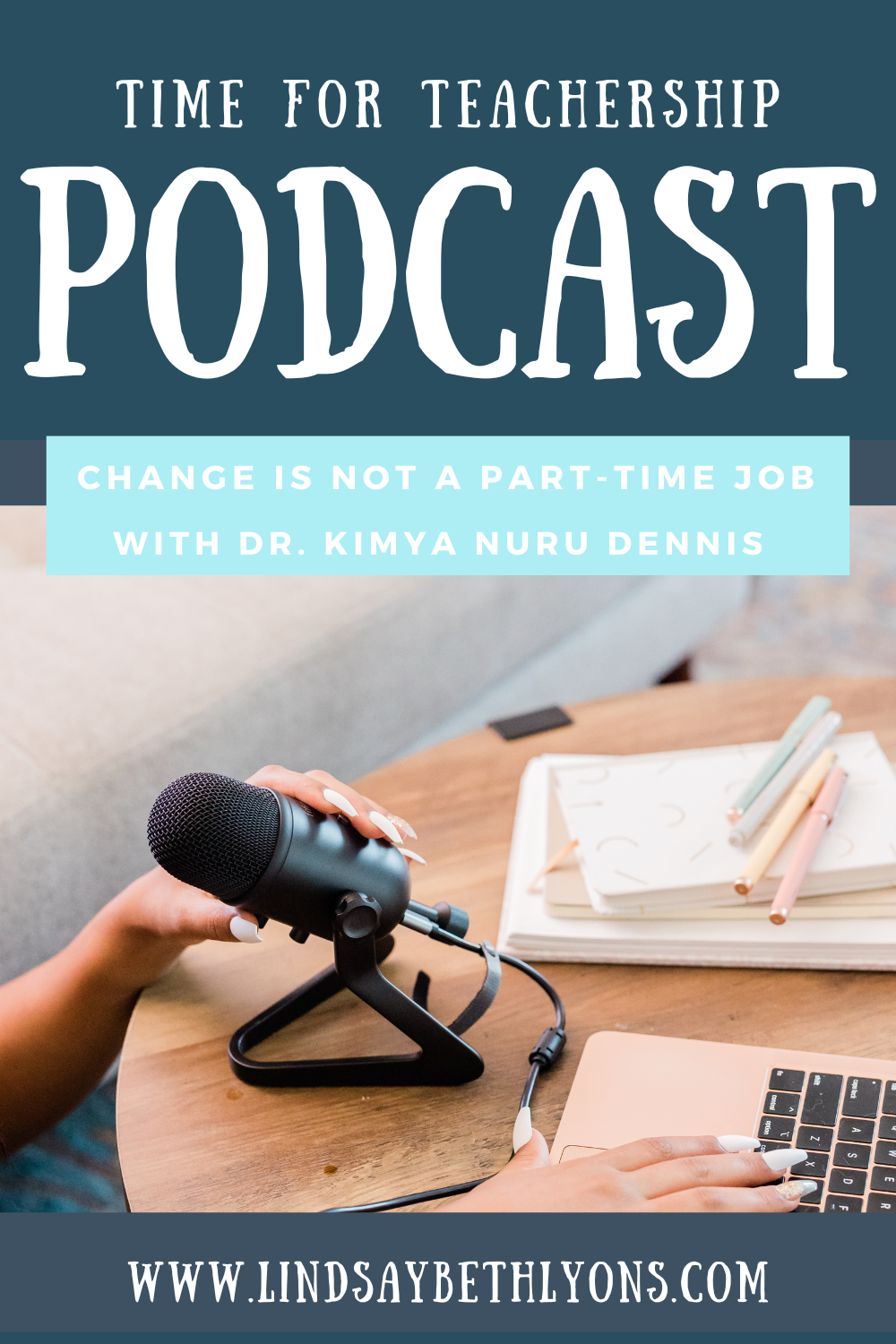
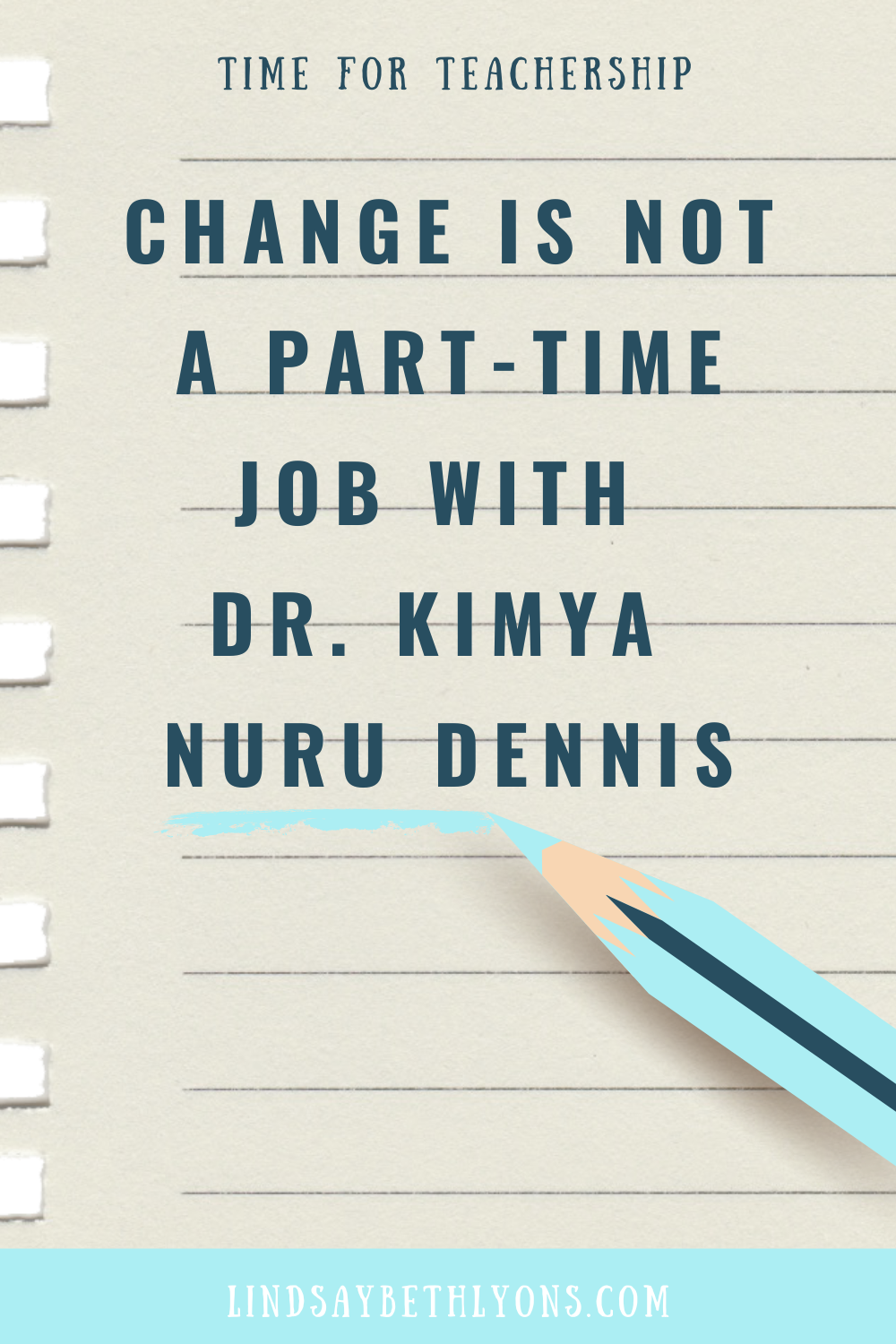
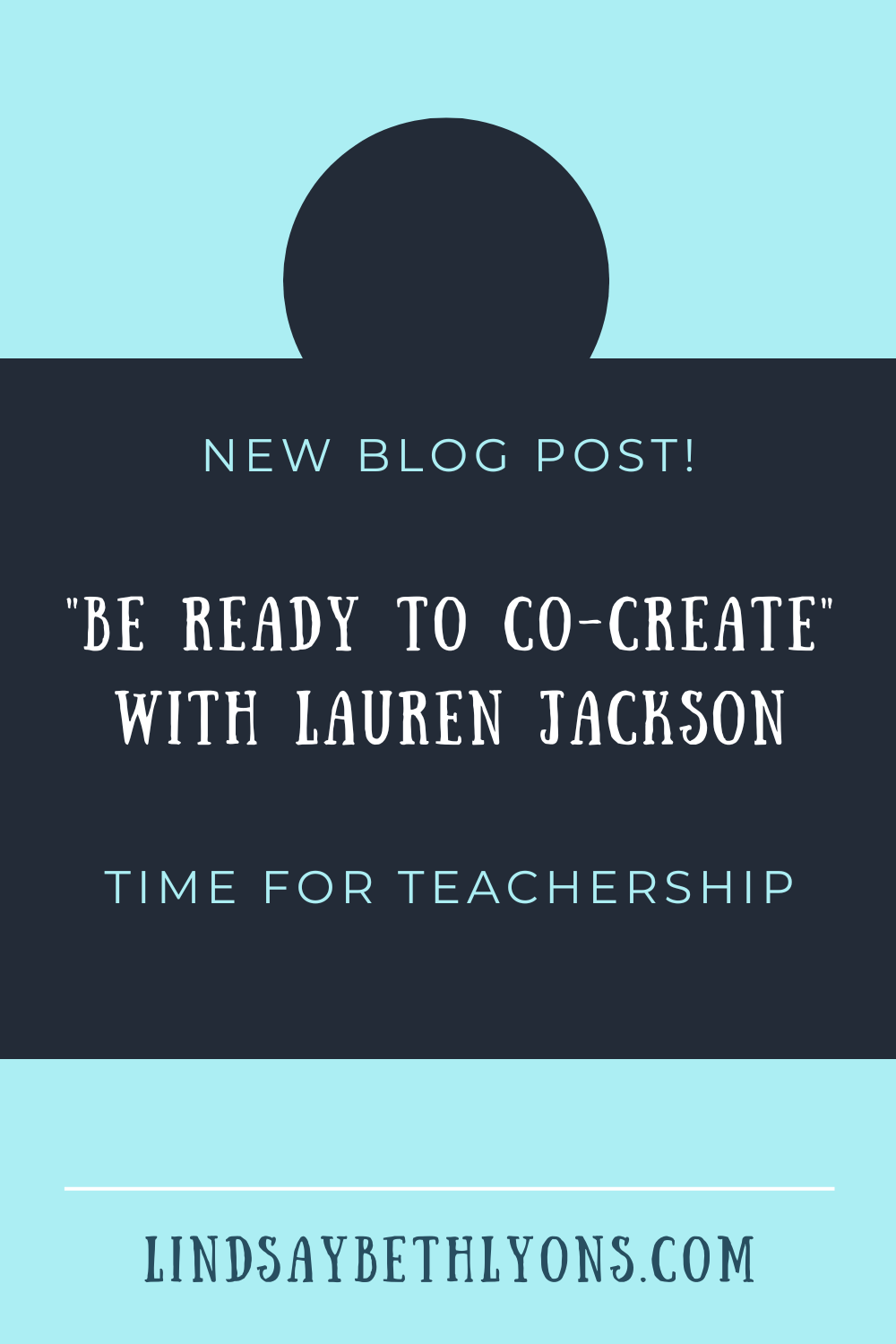
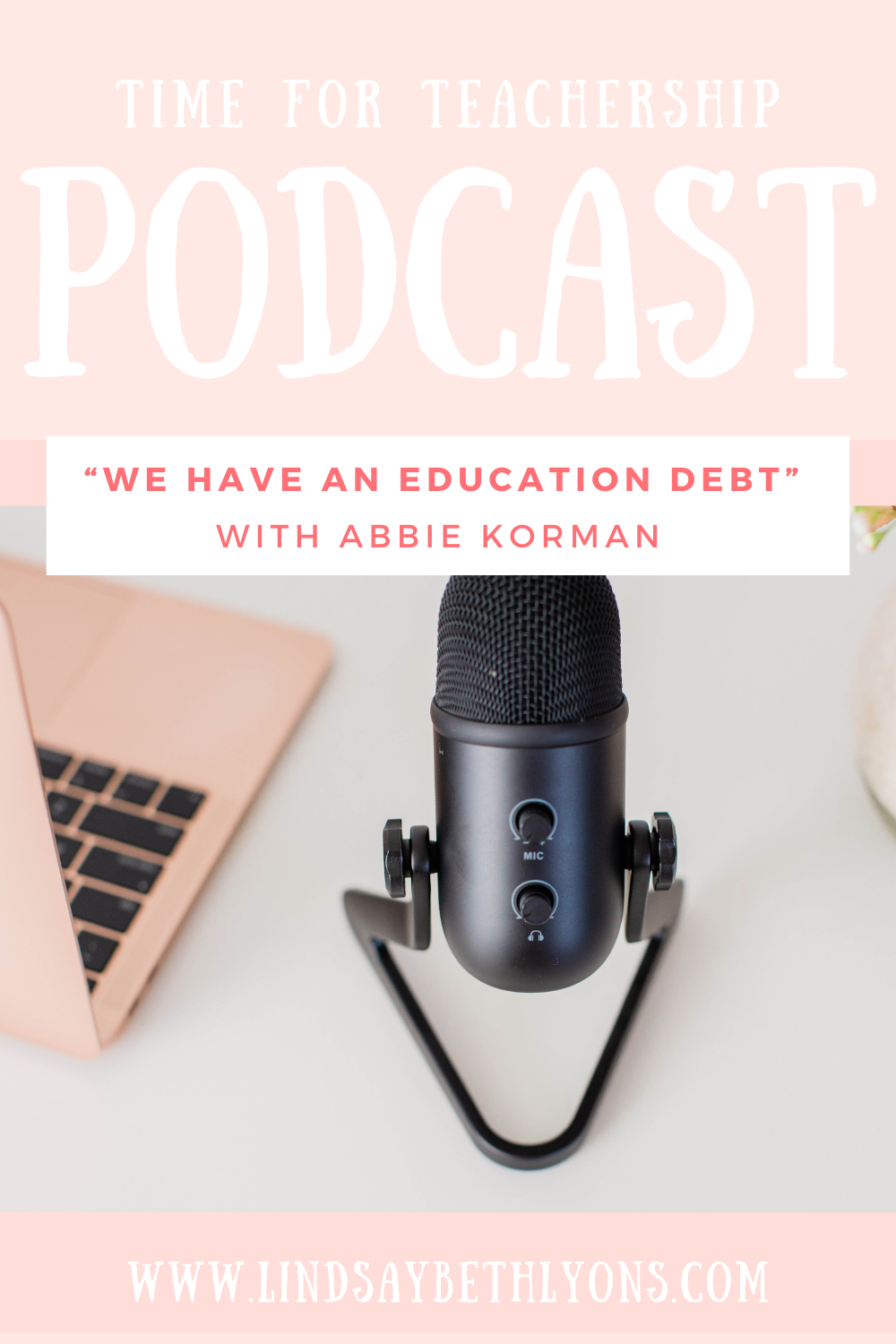
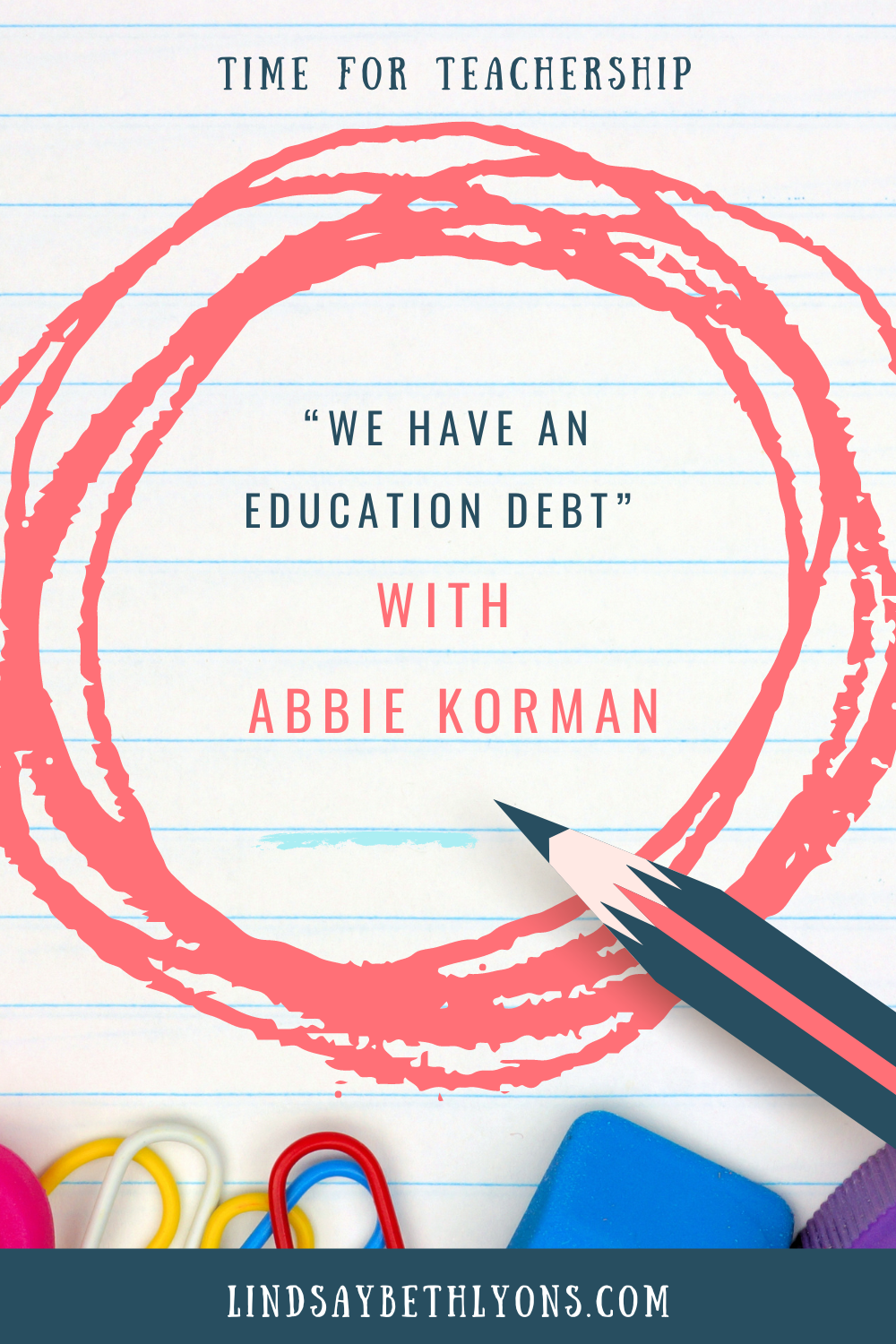
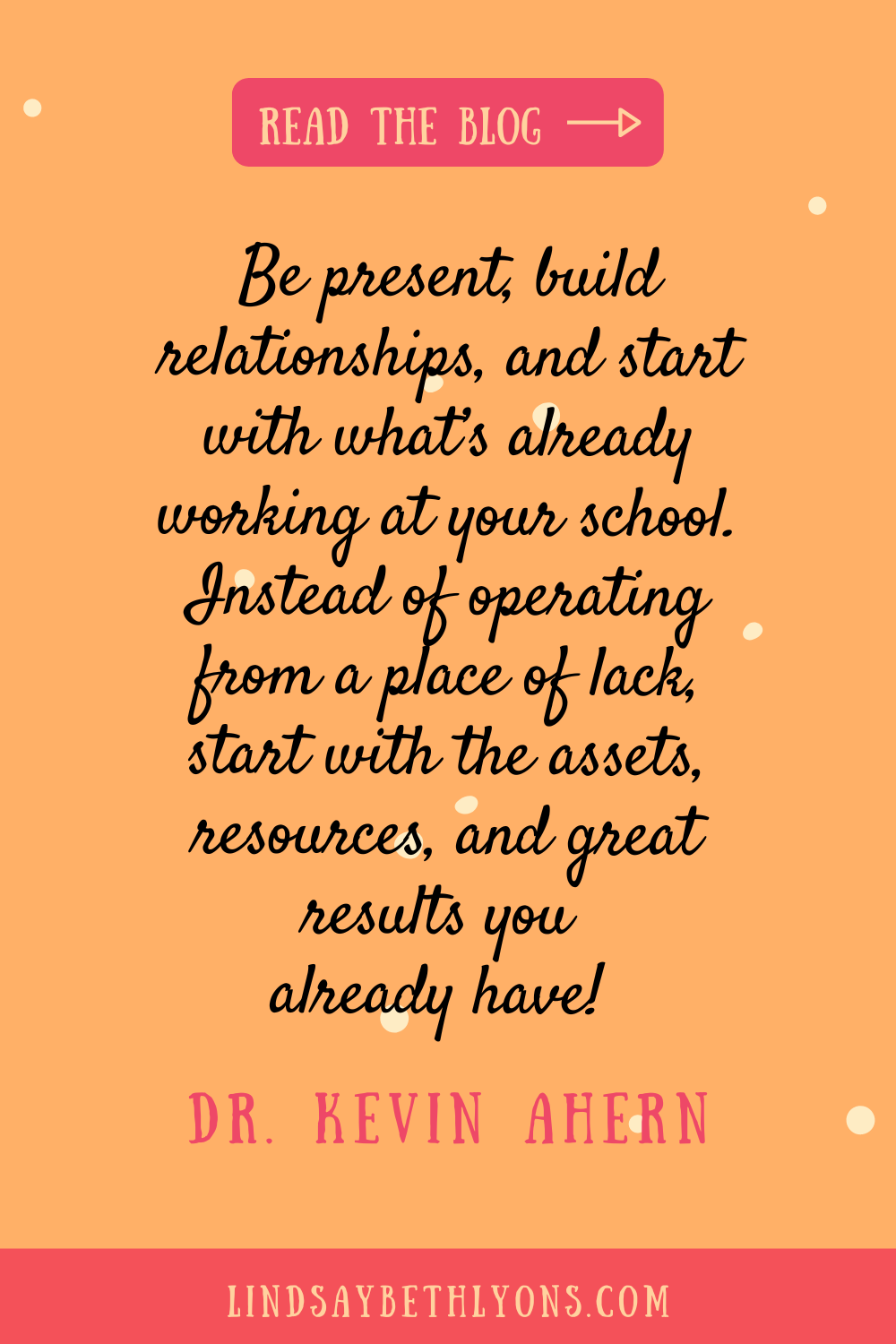
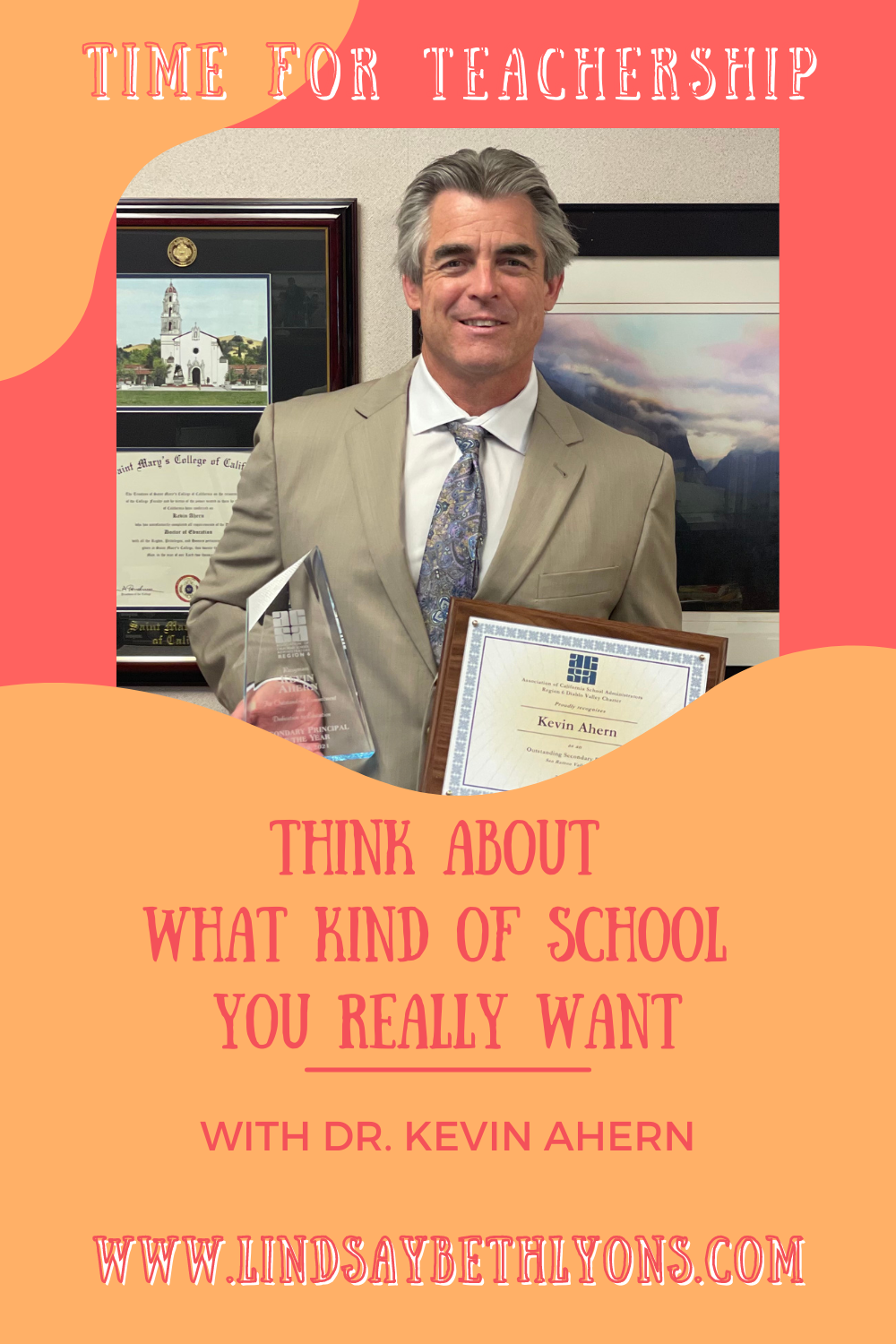
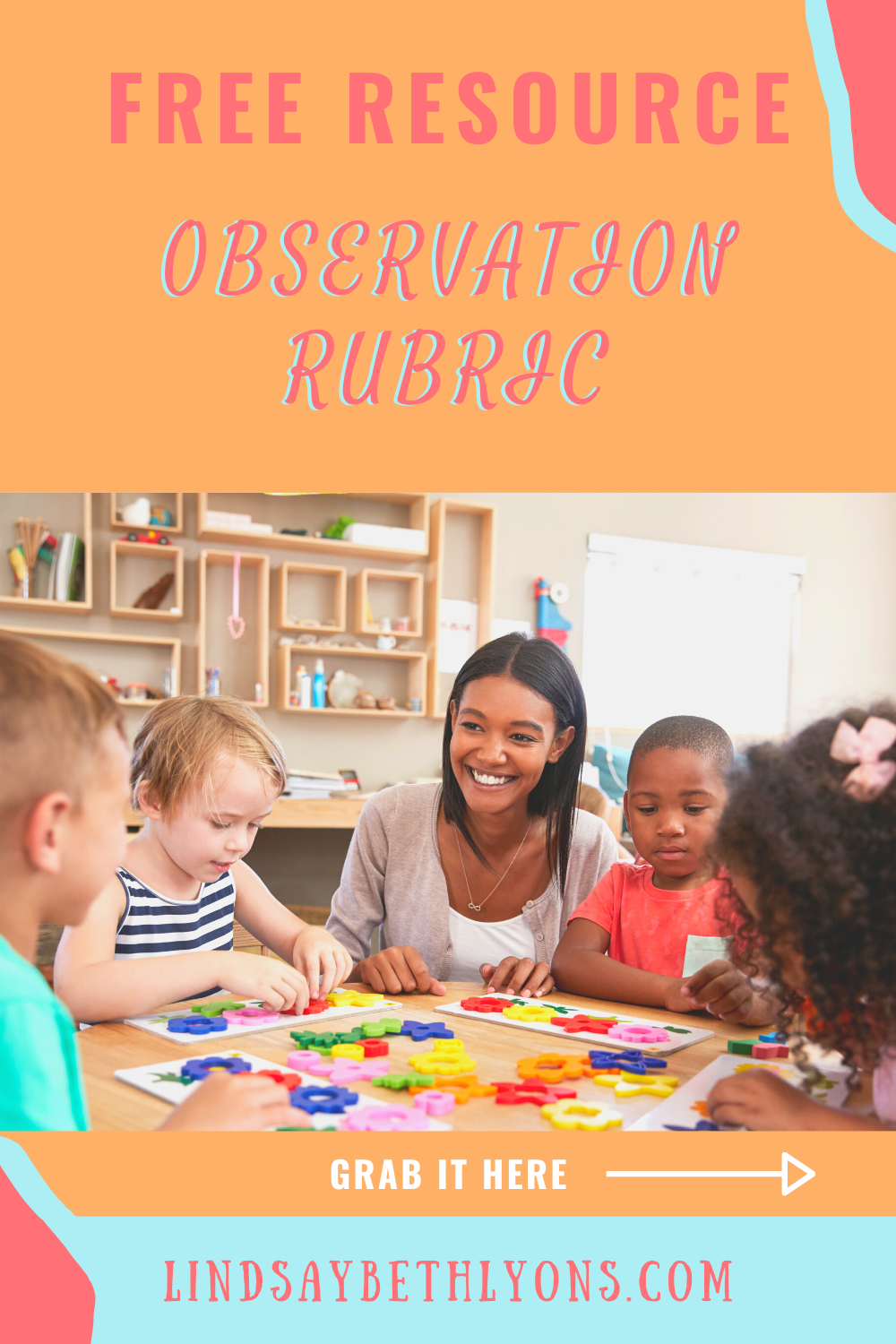
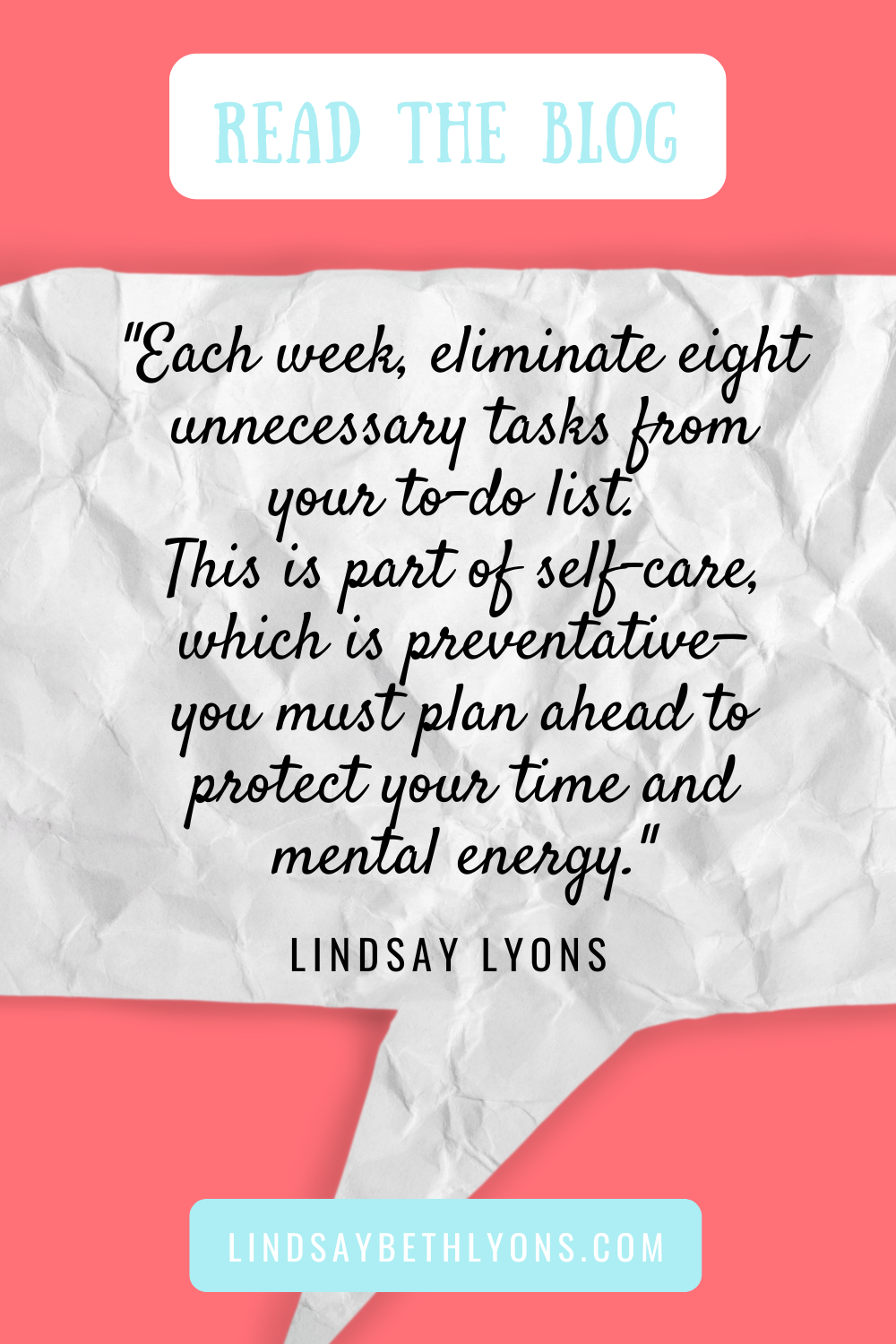
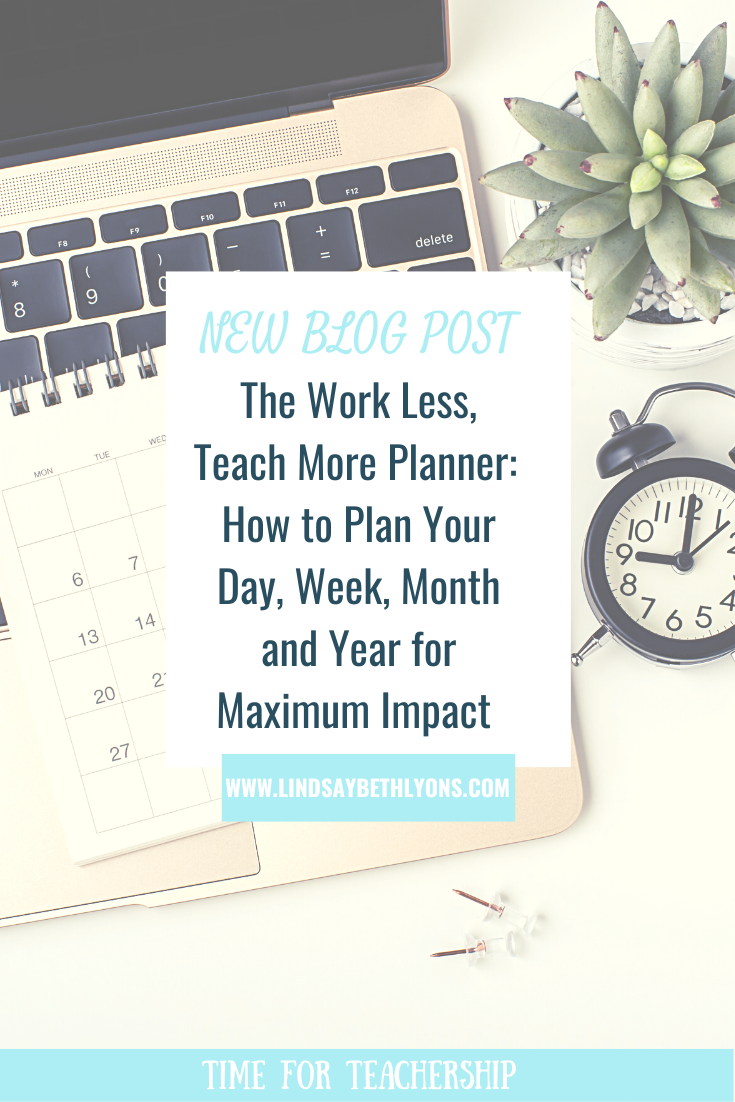
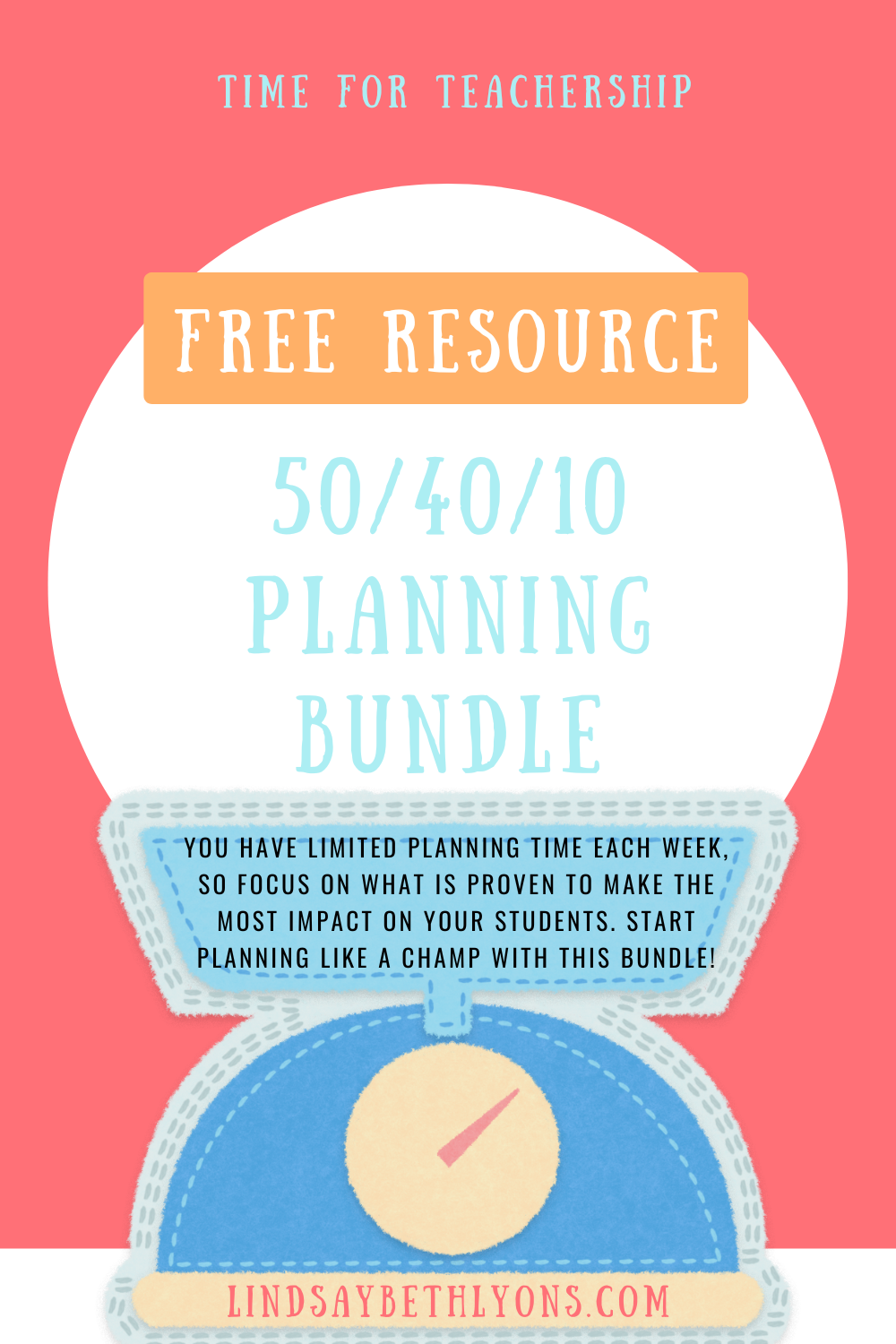

 RSS Feed
RSS Feed